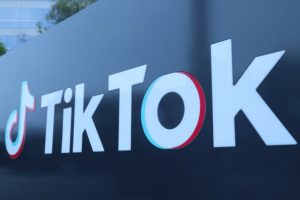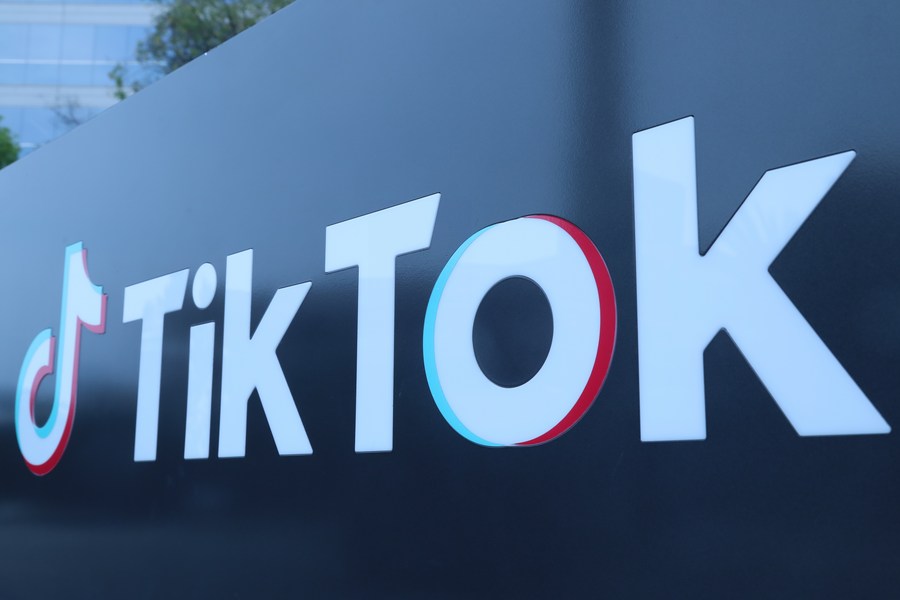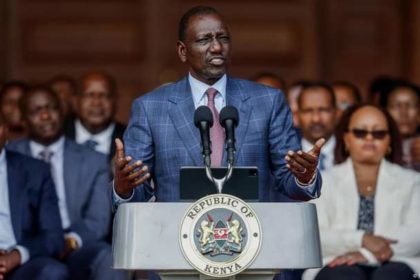
By Adeyemi Adekunle
With just hours remaining before TikTok faces a potential shutdown in the United States, President-elect Donald Trump has announced his inclination to grant the platform a 90-day extension. The decision, if formalized, would temporarily rescue the app from its scheduled ban under a bipartisan congressional mandate requiring its separation from its China-based parent company, ByteDance.
Trump’s remarks on the matter during a Saturday where he addressed his plans for the increasingly contentious issue. “I’m the one who is going to be calling the shots. Most likely, I’ll extend for 90 days. You have the extension for 90 days as you probably know. I’ll do that until we figure something out,” Trump stated. However, he offered no specific details about how such an extension could be implemented.
The congressional mandate underpinning TikTok’s predicament stipulates strict criteria for delaying the ban. Among these are the identification of a path for a qualified divestiture from ByteDance, evidence of substantial progress in executing that plan, and the establishment of binding legal agreements to finalize it. Critics contend that Trump may lack the legal authority to extend the deadline after it expires.
The stakes are high for ByteDance, which has denied allegations of sharing American user data with the Chinese government. Despite repeated assurances, U.S. officials remain concerned that TikTok poses a threat to national security and user privacy. This unease has fueled bipartisan support for regulatory action, culminating in legislation targeting the platform.
However, the timeline for resolving the matter is fraught with legal and practical challenges. During arguments before the Supreme Court, Jeffrey Fisher, a legal advocate for several TikTok creators, argued that an extension beyond the initial 270 days would likely exceed the scope of the law. Although two justices, Brett Kavanaugh and Neil Gorsuch, hinted at their interpretation of Trump’s authority to act, no conclusive ruling has yet emerged from the court.
For TikTok’s vast American user base, which exceeds 150 million, the uncertainty surrounding the app’s future is unnerving. ByteDance has warned of an imminent shutdown if the government fails to issue a decisive statement on the matter by Sunday.
“We will be forced to go dark,” a company representative said Friday, escalating pressure on the White House to clarify its position.
Despite this, current White House Press Secretary Karine Jean-Pierre dismissed ByteDance’s statement as posturing. “TikTok’s threat to go dark on Sunday is a stunt,” she said. Jean-Pierre emphasized that enforcement of the law will fall to the incoming administration, urging TikTok and its users to direct their concerns to them.
The impact of a TikTok ban would extend far beyond individual users, affecting thousands of content creators and businesses who rely on the platform for income and visibility. The app has revolutionized digital marketing and social media trends, becoming a vital tool for entrepreneurs, brands, and entertainers. As the potential ban looms, creators have expressed frustration at the lack of clarity and urged the government to seek an alternative resolution.
Trump’s willingness to consider an extension suggests a recognition of the app’s cultural and economic significance. His stance is notably softer than the unyielding position he adopted during his first term, when he openly called for TikTok’s outright ban. This shift has sparked speculation about how the next administration might address the issue. In an increasingly digitized world, the challenge of balancing innovation with national security concerns has become a prominent policy debate.
Apart from his comments on TikTok, Trump previewed his broader policy agenda for the early days of his presidency. Among his top priorities are rolling back electric vehicle mandates introduced under President Biden and taking aggressive steps to curb illegal immigration. “We have to get them out, and we’re prepared to do so, otherwise we’re not going to have a country,” Trump said regarding undocumented immigrants. On electric vehicles, he criticized Biden’s policies as “ridiculous” and vowed to reverse them swiftly.
The unfolding TikTok saga exemplifies the broader geopolitical tensions between the United States and China, particularly in the realm of technology. Throughout his political career, Trump has championed an “America First” agenda, often emphasizing the need to counteract China’s global influence. His rhetoric on TikTok has mirrored this stance, framing the platform’s potential ban as a matter of national sovereignty and security.
Nevertheless, Trump’s latest comments indicate a more pragmatic approach, one that seeks to explore alternatives while preserving American users’ access to the platform. Whether the 90-day extension materializes remains uncertain, as does TikTok’s ability to navigate the complex legal and political landscape ahead.
For now, millions of users wait anxiously, facing the possibility that one of the world’s most popular social media platforms could vanish overnight. Whatever the outcome, the TikTok controversy underscores the challenges of regulating global technology in a time of deepening international tensions.




